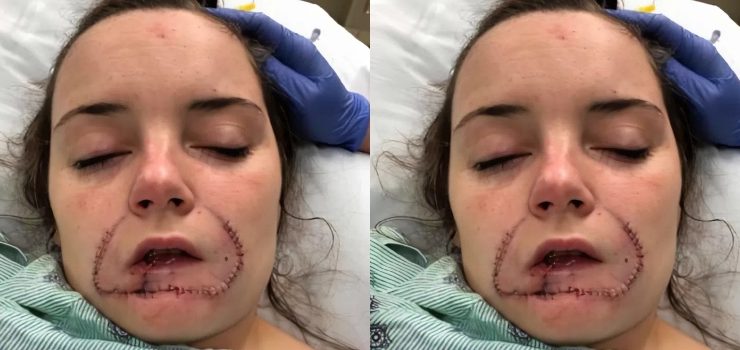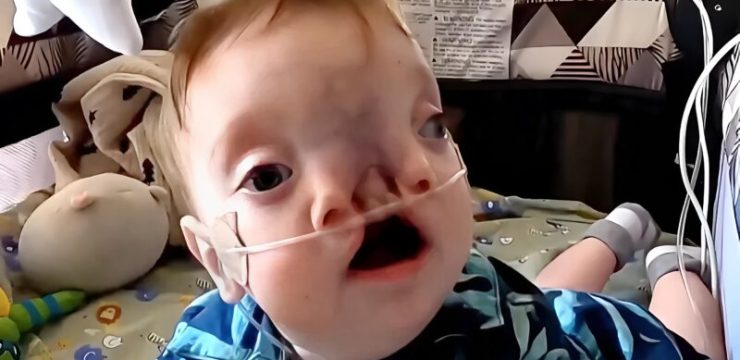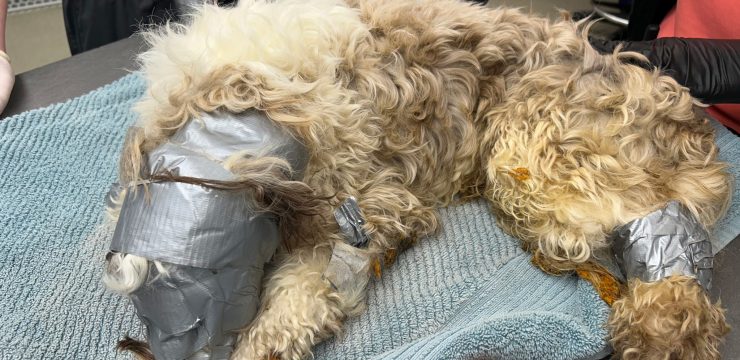Outside the library, a modest folding table stood quietly, holding a few brown paper bags and a handwritten sign that read, “FREE LUNCH FOR ANYONE WHO NEEDS.” At first, I barely noticed it. It seemed like a small, kind gesture in a world that rarely pauses for compassion. But after a week of skipping meals and watching my bank account hover around two dollars, I gave in and picked up a bag. Inside was a peanut butter sandwich, apple slices, and a granola bar—not gourmet by any means, but it filled my stomach and strangely comforted me in ways I hadn’t expected.

The next day, I returned. And then again. It became part of my routine—a quiet ritual during a difficult time. Then one Friday, as I opened my lunch bag while sitting on a bench across the street, something slipped out—a small piece of folded paper written in messy blue ink. It said, “If you’re reading this, I think we’re connected in more ways than you know.” No signature, no explanation. Just a line that stirred something in me. I thought maybe it was meant to be motivational, until another note appeared two days later: “You lived on Linden Street, right? Near the blue house?” My heart skipped a beat. That was my childhood home. From that moment, I started showing up every morning at eleven. I told myself it was for the food, but I was searching for more notes, for answers. Then came one that read, “Tomorrow. Come early. I’ll be there.”
I barely slept that night, thoughts racing through my head. Who was leaving these messages? An old neighbor? Someone from my past? I got up early, pulled on a hoodie, and walked through the chilly autumn air. When I arrived, the table was already set up. Behind it stood a tall woman wrapped in a thick coat, her scarf high around her face. Our eyes met. She held a cup of steaming coffee. “You came,” she said softly. “Yeah,” I replied, nervous. “Who are you? How do you know about Linden Street?” She hesitated, then motioned to the nearby bench. “Let’s sit.” She removed her scarf to reveal warm brown eyes and the soft lines of age around her mouth. “I’m Clara Hensley,” she said. “I knew your mother.”
Her name landed like a stone in my chest. My mother had died five years ago. We hadn’t been especially close, but the loss had left a lingering sadness. Clara reached into her coat and pulled out an old photo. It showed my mom smiling, arms around a teenage girl who now sat beside me. “That’s me,” she said. “We were best friends. Life took us in different directions, but we kept in touch. When she got sick… she asked me to look out for you.” I stared at her in disbelief. I had always thought I was alone. “She never told me about you,” I said. Clara nodded. “She didn’t want you to feel pressured. But she was worried. Said you carried too much, worked too hard.” She wasn’t wrong. I had buried myself in work and distractions, trying to escape the ache I couldn’t name. “So why the notes?” I asked. “I didn’t want to overwhelm you,” Clara said. “I thought if you kept coming back, maybe you needed someone too.” Over the next few weeks, Clara and I met often. She introduced me to the volunteers behind the lunch table—Walter, the retired teacher; Sofia, a college student; Marcus, a construction worker between jobs. They weren’t just handing out sandwiches.
@dralexgeorgeGrief isn’t something to “get over”, it’s something we learn to live alongside. The people we love never truly leave us; as long as we keep their memory alive, they will be with us forever💙 Some days, I laugh. Other days, I cry. And always, there’s a space in my heart that will never be filled, but that’s just the price we pay for love. Sending lots of love to anyone going through a difficult time at the moment, I am here for you x #grief #mentalfitness #evolution
They were creating a space of kindness, a quiet community. Clara shared stories about my mother—her sense of humor, her stubbornness, her unwavering loyalty. Through Clara’s memories, I began to see my mom not just as a parent, but as a person. Then one day, Clara handed me a worn envelope. “Your mom left this for you,” she said. Inside was a letter and a small key. The letter read: “Hi Sweetheart. If you’re reading this, I’m gone. But know I loved you deeply. Life’s been hard, and I wish I could have made it easier. The key is for a storage unit. Inside are things I kept just for you—photos, letters, memories. Pieces of our life. Pieces of me. Let love guide you.” We drove to the unit. Inside were boxes labeled with parts of my childhood: “Photos,” “Christmas,” “School Projects.” There was a record player, a concert ticket, a lock of baby hair. One by one, the pieces came together—my mother’s love, preserved. That day shifted something in me. I joined Clara’s crew at the lunch table. We expanded the program, added hot meals and meetups. I began volunteering regularly, realizing how much I needed to give and how much I had to offer. One evening, as we packed up, Clara said, “Your mom would be proud.” I smiled and said, “Thanks for everything.” She replied, “Just passing on her love.” And now I understand—love doesn’t disappear. It lingers in our memories, our actions, in the kindness we give to others. All it takes is one meal, one note, one moment. Someone out there is carrying love for you—you just have to look. And when you find it, pass it on.





